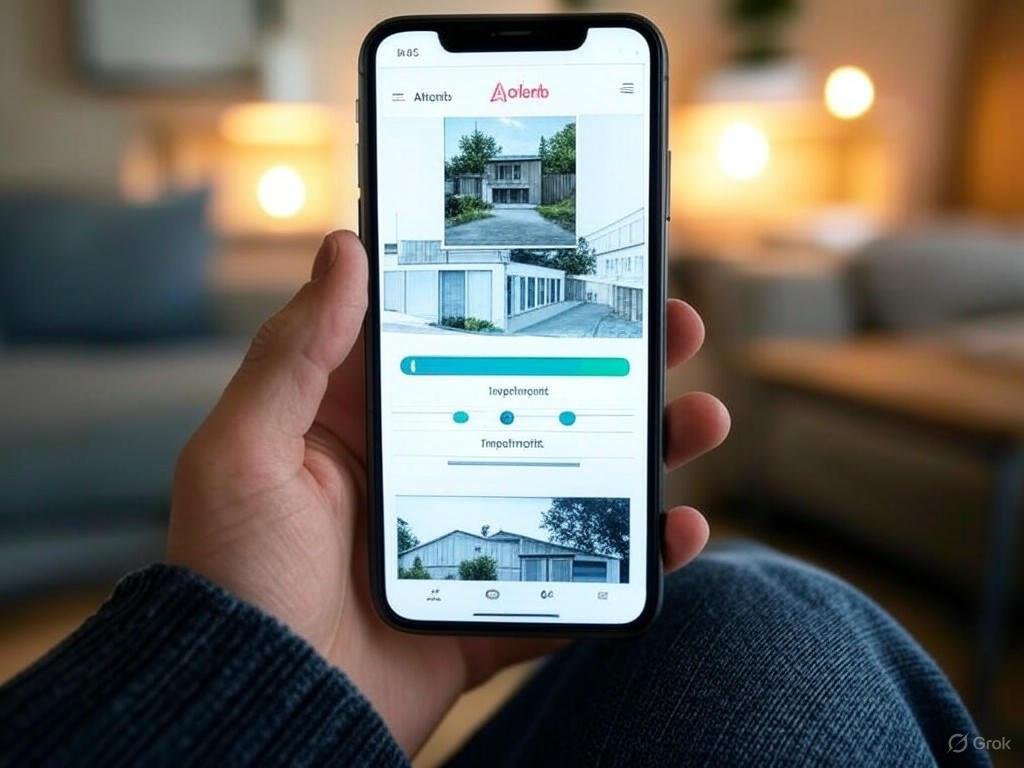The short-term rental market, led by platforms like Airbnb, has transformed how people travel and invest. With millions of listings worldwide and a growing demand for unique stays, Airbnb has become a goldmine for savvy investors. But what if you don’t own a property or lack the capital to buy one? Can you still tap into this lucrative market? Absolutely. Investing in Airbnb without owning property is not only possible but also a smart way to diversify your income streams. This guide dives deep into practical, expert-backed strategies to help you break into the Airbnb investment game without purchasing real estate. Whether you’re a beginner or a seasoned investor, these methods will show you how to leverage the platform’s potential with minimal upfront costs.
Why Invest in Airbnb Without Owning Property?

Airbnb’s business model thrives on flexibility, making it accessible for those who don’t want to deal with the headaches of property ownership. From rising real estate prices to maintenance costs and legal regulations, owning a rental property can be daunting. By investing without owning, you sidestep these challenges while still capitalizing on the short-term rental boom. The global vacation rental market, valued at over $100 billion in 2023, is projected to grow steadily, driven by platforms like Airbnb. This creates a unique opportunity for creative investors to generate passive income without tying up their savings in a single asset.
The beauty of non-property-owning strategies lies in their scalability and lower risk. You can start small, test the waters, and scale up as you gain experience. Plus, you avoid long-term financial commitments like mortgages or property taxes. Below, I’ll walk you through the most effective ways to invest in Airbnb without owning a single square foot of real estate, along with tips to maximize your returns and avoid common pitfalls.
Strategy 1: Airbnb Rental Arbitrage
One of the most popular ways to invest in Airbnb without owning property is through rental arbitrage. This strategy involves leasing a property long-term from a landlord and then listing it on Airbnb for short-term rentals at a higher rate. The difference between the rent you pay and the revenue you earn from Airbnb becomes your profit.
How Rental Arbitrage Works
To get started, you’ll need to find a landlord open to short-term rentals. This is critical, as many leases prohibit subletting or Airbnb hosting. Approach landlords with a professional pitch, emphasizing how you’ll maintain the property and generate consistent rental income. Once you secure a lease, furnish the space to appeal to Airbnb guests—think cozy, Instagram-worthy decor—and list it on the platform.
For example, imagine renting an apartment for $1,500 per month. By listing it on Airbnb, you might charge $100 per night. If you book 20 nights a month, that’s $2,000 in revenue, leaving you with a $500 profit after rent (before other expenses like utilities or cleaning fees). The key is to choose high-demand locations, such as tourist hotspots or business districts, where nightly rates are competitive.
Tips for Success in Rental Arbitrage
- Research the Market: Use tools like AirDNA or Mashvisor to analyze local Airbnb demand, average nightly rates, and occupancy rates. Focus on cities or neighborhoods with high tourist traffic or limited hotel options.
- Negotiate with Landlords: Offer to pay a slightly higher rent or a security deposit to sweeten the deal for landlords hesitant about short-term rentals.
- Optimize Your Listing: High-quality photos, detailed descriptions, and competitive pricing are crucial for attracting bookings. Consider hiring a professional photographer to make your listing stand out.
- Factor in Costs: Account for furnishing, utilities, cleaning fees, and Airbnb’s host service fee (typically 3-5%) when calculating your profit margin.
Risks to Watch Out For
Rental arbitrage isn’t without challenges. Some cities have strict regulations on short-term rentals, so check local laws before signing a lease. Additionally, you’re responsible for any damage caused by guests, so invest in good insurance coverage. Finally, occupancy rates can fluctuate seasonally, so build a financial buffer to cover slow months.
Read more: Easy Ways to Make Money as a Student – From Side Hustles to Smart Savings
Strategy 2: Co-Hosting for Airbnb Hosts
If you’re not ready to lease a property, co-hosting is a low-risk way to dip your toes into the Airbnb market. As a co-host, you manage someone else’s Airbnb listing in exchange for a percentage of the revenue—typically 10-20%. This role is perfect for those with strong organizational skills, a knack for hospitality, or experience in marketing.
What Does a Co-Host Do?
Co-hosts handle tasks like guest communication, booking management, pricing optimization, and coordinating cleanings. Some even assist with interior design or staging to boost the property’s appeal. You don’t need to own or rent the property; you’re essentially a property manager for the Airbnb host.
To find co-hosting opportunities, network with local property owners through Airbnb’s co-host marketplace, social media groups, or real estate meetups. You can also reach out directly to hosts with poorly optimized listings and offer your services to improve their performance.
Why Co-Hosting Works
Co-hosting requires minimal upfront investment—just your time and expertise. It’s also a great way to learn the ins and outs of Airbnb hosting before committing to larger ventures like rental arbitrage. Plus, you can manage multiple properties to scale your income.
Tips for Becoming a Successful Co-Host
- Build a Reputation: Start by managing one or two listings and focus on delivering five-star guest experiences. Positive reviews will attract more clients.
- Use Automation Tools: Platforms like Guesty or Hostaway streamline tasks like messaging, pricing, and scheduling, saving you time.
- Understand Local Regulations: Ensure the properties you manage comply with local short-term rental laws to avoid fines or shutdowns.
- Negotiate Fair Terms: Agree on a clear revenue split with the host and put the terms in writing to avoid misunderstandings.
Strategy 3: Investing in Airbnb-Related Businesses
Another way to profit from Airbnb without owning property is by starting a business that supports the ecosystem. The short-term rental industry relies on a network of services, from cleaning to interior design to guest experiences. By providing these services, you can tap into the Airbnb market without dealing with properties directly.
Ideas for Airbnb-Related Businesses
- Cleaning Services: Airbnb hosts need reliable, high-quality cleaning between guests. Start a cleaning company specializing in short-term rentals, offering quick turnarounds and attention to detail.
- Interior Design and Staging: Help hosts create guest-ready spaces with stylish, functional furnishings. Offer packages tailored to Airbnb’s aesthetic, like minimalist decor or themed setups.
- Guest Experience Services: Provide curated experiences for Airbnb guests, such as guided tours, cooking classes, or adventure packages. Partner with hosts to promote your services directly to their guests.
- Photography Services: Professional photos can make or break an Airbnb listing. If you’re skilled with a camera, offer photography packages to help hosts showcase their properties.
How to Get Started
Identify a service that aligns with your skills or interests, then market it to Airbnb hosts in your area. Create a professional website and use social media to showcase your work. Join Airbnb host communities on platforms like Facebook or Reddit to connect with potential clients. Over time, you can scale your business by hiring a team or expanding to multiple cities.
Why This Approach Works
These businesses have low startup costs and high demand, especially in popular Airbnb markets. They also allow you to build a brand that can serve other platforms, like Vrbo or Booking.com, increasing your revenue potential.
Read more: Unboxing the Future – PeteBot Review and Insights
Strategy 4: Investing in Airbnb Stock or REITs
For those who prefer a hands-off approach, investing in Airbnb’s stock (ABNB) or real estate investment trusts (REITs) tied to the hospitality sector is a smart way to gain exposure to the short-term rental market. While this doesn’t involve hosting or managing properties, it allows you to benefit from Airbnb’s growth without the operational hassle.
Investing in Airbnb Stock
Airbnb went public in December 2020, and its stock has been a popular choice for investors betting on the travel industry’s recovery. By purchasing ABNB shares through a brokerage account, you can invest in the company’s overall performance without owning physical properties.
Before investing, research Airbnb’s financials, market trends, and competitors. Keep an eye on macroeconomic factors like travel demand, interest rates, and regulatory changes that could impact the stock. Diversify your portfolio to mitigate risk, as individual stocks can be volatile.
Exploring Hospitality REITs
REITs are companies that own or finance income-generating real estate, often in the hospitality sector. Some REITs, like those focused on hotels or vacation properties, indirectly benefit from the short-term rental boom. Examples include Host Hotels & Resorts or Apple Hospitality REIT. These investments offer dividends and potential capital appreciation, making them a passive way to tap into the market.
Tips for Stock and REIT Investing
- Use a Reputable Broker: Platforms like Fidelity, Charles Schwab, or Robinhood make it easy to buy stocks and REITs.
- Start Small: If you’re new to investing, begin with a small amount and gradually increase your position as you gain confidence.
- Stay Informed: Follow travel industry news and Airbnb’s quarterly earnings reports to make informed decisions.
- Consider ETFs: For broader exposure, invest in exchange-traded funds (ETFs) that include Airbnb or hospitality REITs, reducing your risk compared to single-stock investments.
Strategy 5: Partnering with Property Owners
If rental arbitrage or co-hosting feels too hands-on, consider partnering with property owners to share profits from Airbnb rentals. In this model, you bring your expertise in managing Airbnb listings, while the property owner provides the real estate. You split the revenue based on an agreed-upon percentage.
How to Structure a Partnership
Approach property owners who have underutilized homes, such as vacation homes or second properties, and propose turning their space into an Airbnb. You handle setup, marketing, and guest management, while they provide the property. A typical split might be 60/40 or 50/50, depending on your responsibilities and their investment.
For example, if a homeowner has a beach house that sits empty most of the year, you could transform it into a high-demand Airbnb listing. By managing the listing and ensuring consistent bookings, you create a win-win: the owner earns passive income, and you profit without owning the property.
Tips for Successful Partnerships
- Draft a Clear Agreement: Work with a lawyer to create a contract outlining responsibilities, revenue splits, and liability for damages.
- Choose the Right Partner: Look for owners with properties in high-demand areas and a willingness to collaborate.
- Invest in Marketing: Use your expertise to optimize the listing and drive bookings, ensuring both parties maximize profits.
Read more: Earning Sites Legit – My Honest Journey to Finding Real Online Income Sources
Common Mistakes to Avoid

Investing in Airbnb without owning property is exciting, but it’s not without risks. Here are some pitfalls to steer clear of:
- Ignoring Local Regulations: Short-term rental laws vary widely. Research your city’s rules to avoid fines or legal issues.
- Underestimating Costs: Whether it’s furnishing, cleaning, or insurance, unexpected expenses can eat into your profits. Always budget conservatively.
- Overlooking Guest Experience: Poor reviews can tank your listing’s performance. Prioritize guest satisfaction with prompt communication and a clean, welcoming space.
- Relying on One Strategy: Diversify your approach—combine rental arbitrage, co-hosting, or stock investments to spread your risk.
Scaling Your Airbnb Investment
Once you’ve mastered one strategy, consider scaling your efforts. For example, manage multiple arbitrage properties, take on more co-hosting clients, or expand your Airbnb-related business to new markets. Automation tools like dynamic pricing software (e.g., PriceLabs) and channel managers (e.g., Lodgify) can streamline operations, allowing you to handle more listings with less effort.
Networking is also key. Join Airbnb host communities, attend real estate or hospitality conferences, and build relationships with other investors. The more you learn from experienced hosts, the faster you’ll grow your income.
Final Thoughts
Investing in Airbnb without owning property is a game-changer for those looking to break into the short-term rental market without the hefty price tag of real estate. From rental arbitrage to co-hosting to starting an Airbnb-related business, there are plenty of ways to profit from the platform’s massive popularity. By choosing the right strategy, doing your homework, and staying adaptable, you can build a sustainable income stream with minimal risk.
The key is to start small, learn the ropes, and scale strategically. Whether you’re managing listings, investing in stocks, or offering specialized services, the Airbnb ecosystem offers endless opportunities for creative investors. So, what are you waiting for? Dive into the world of Airbnb investing and carve out your slice of this booming market.






